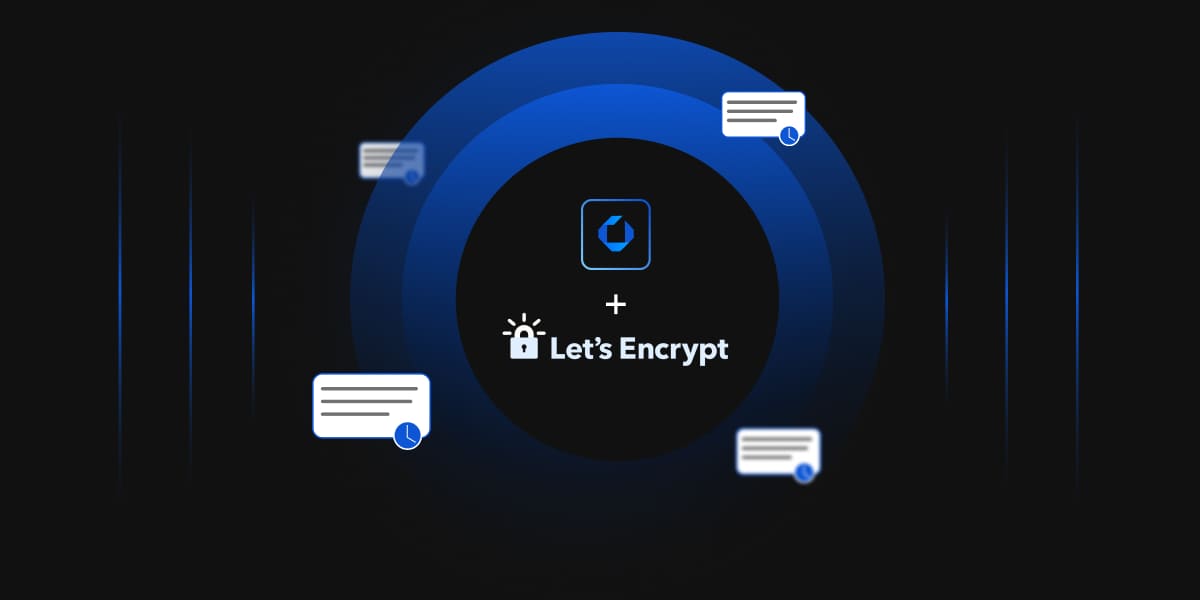With the world accessing the Internet more than ever, securing communication over the Internet has never been more crucial. The go-to solutions are Transport Layer Security(TLS) and Secure Socket Layer(SSL). These certificates have safeguarded online communications, protected sensitive information, and helped to establish trust with users.
Historically, SSL digital certificates could be valid for years, after which they had to be renewed or replaced.
Following Apple’s declaration to change the certificate validity on its Safari browsers from 27 to 13 months, numerous other companies, including Google, followed suit starting in September 2020. Many certificate authorities (CAs) began to shorten the duration of the SSL certificates they issued. Google, most recently, proposed a significant change at the Certificate Authority/Browser (CA/B) Forum that focuses on automated certificate lifecycle management by reducing the validity of TLS certificates from 398 days to 90 days. With a market share of almost 65%, Chrome is one of the most popular browsers, and many more are likely to follow.
To be trusted by Chrome users, SSL certificates issued for websites must adhere to the new maximum validity term.
Certificate Automation is the key!
While a shorter certificate validity period may offer great advantages, it comes with disadvantages, which, if not handled properly, may have adverse effects. Renewing a certificate at the last moment and being unable to meet the task may have horrendous effects. An expired certificate is responsible for many things that damage the organization.
-
Data Breaches
Expiring SSL Certificates leads to the site being vulnerable to attack from outside, as the secure connection is broken as soon as the certificate expires. Once the secure connection is broken, an attacker can compromise your sensitive information, credit card details, or any other sensitive information being sent.
-
Service Interruption
Expired certificates lead to unwanted downtime. Users cannot access the site as the certificate will throw an error and mark the site as unsafe. They are leading to monetary loss as well as reputation loss.
-
Search engine penalties
Search engines such as Google consider SSL certificates a ranking factor and may penalize websites with expired certificates. Such search engine penalties can negatively impact website rankings and traffic for businesses.
-
Reputation Loss
Expired certificates negatively impact the reputation of the organization. The users lose trust in the organization, and the trust may never be gained again so easily.
With all these disadvantages, the best and most reliable solution is automating the certificate renewal process. Automation drastically cuts manual time and safeguards against any possible mistakes and errors during certificate renewal.
Why Shorten Your Certificate Validity Period?
A Certificate Validity of 90 days might seem complex and have you worried about the frequent rotation of certificates. Renewing the SSL certificate manually takes a few hours of your day, and this certificate renewal process will be cycled every three months. It may seem like extra work at hand, but its advantages compensate for the extra hard work put in.
What are the Advantages?
- You always stay on top of the latest encryption and security.
- With scheduled Automation, you eliminate last-minute renewal emergencies.
- You have the flexibility to change certificate providers without being locked in long-term.
- If your certificate’s private key is unknowingly compromised, the attacker’s window of opportunity is much smaller.
- Longer-lasting SSL certificates provide hackers a wider window of opportunity to find security holes and attack websites. The potential harm an assault could bring is greatly diminished by restricting the certificate’s validity to 90 days.
- Reducing the need for unscheduled reissuing results from shorter validity periods forces CAs and owners to monitor threat developments. On the other hand, longer certificate validity periods make it simple for CAs to become out of touch with the constantly shifting certificate ecology and fall prey to fresh dangers.
How Can Encryption Consulting Help You?
The CertSecure Manager from Encryption Consulting is an advanced solution created to alleviate the difficulties of manual certificate management and help enterprises comply with these impending standards.
CertSecure Manager optimizes the entire certificate management process through end-to-end Automation with its extensive features, including lifecycle management, certificate discovery, inventory management, issuance, deployment, renewal, revocation, and reporting capabilities.
Additionally, CertSecure Manager’s integrated alerts deliver prompt notices for important events like impending certificate expirations, enabling enterprises to take preventative action and minimize service interruptions. Ensuring a safe and compliant certificate infrastructure, CertSecure Manager assists enterprises in meeting the highest industry requirements, including PCI-DSS, HIPAA, and GDPR. Organizations may effectively manage their certificates, improve security, save time and money, maintain a strong online presence, and comply with Google’s planned TLS certificate validity reduction by utilizing CertSecure Manager.
Conclusion
In conclusion, while the 90-day SSL certificate life cycle offers improved security, agility, and accountability, it may pose some challenges for organizations, especially those with numerous web properties. However, with careful planning, investment in automated certificate management tools, like CertSecure Manager, and adjustments to their processes and procedures, organizations can effectively manage shorter SSL certificate life cycles and ensure the security of their websites and web applications.
No doubt, shorter certificate validity is a complex and delicate process. If not handled delicately, it may lead to disasters, but pros like increased security, better compliance, agility, etc., are worth the effort.
Thus, complying with the evolving world of Automation is the key to smooth certificate management.




